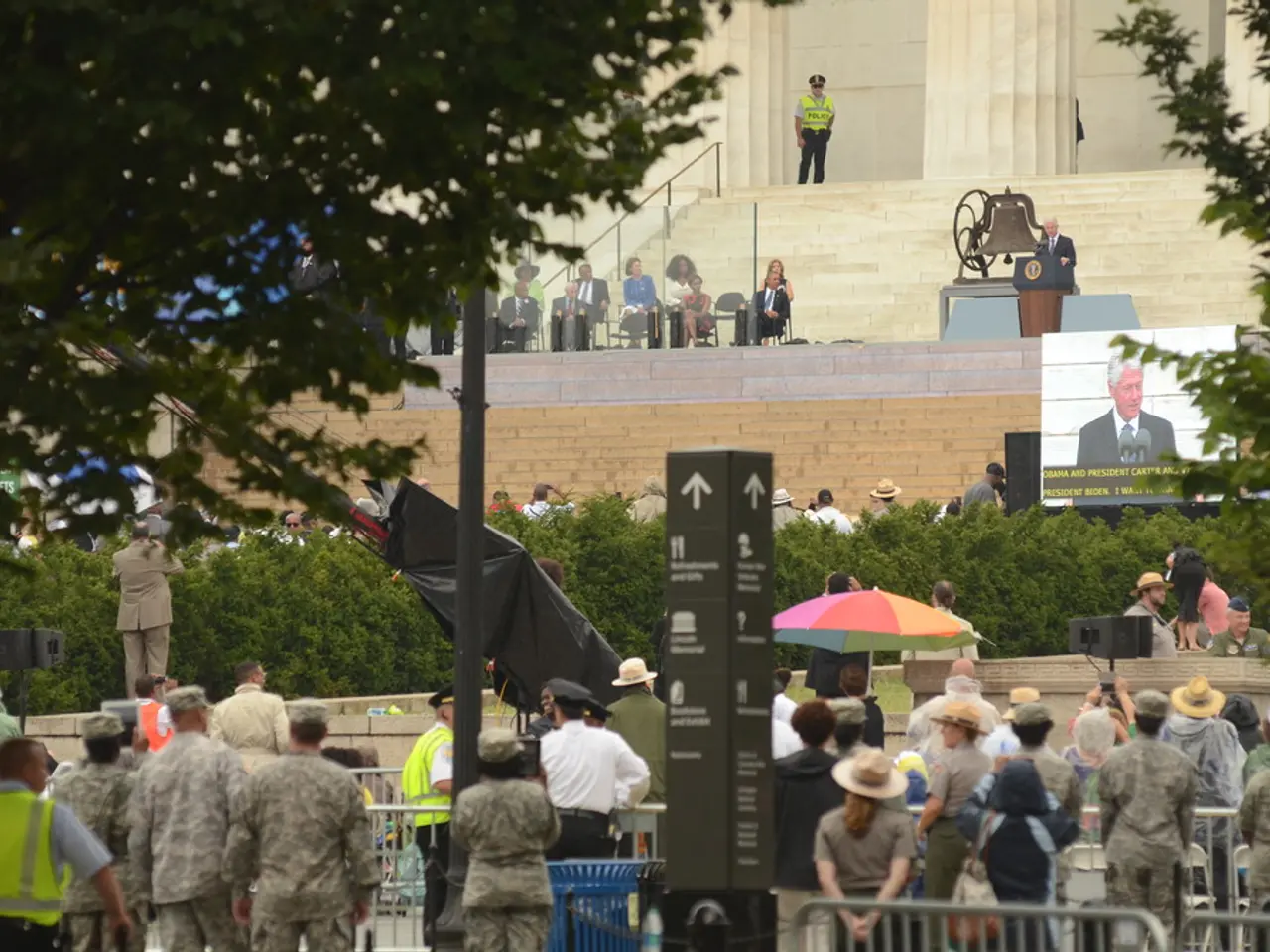U.S. President Trump commands the Pentagon to arrange overseas operations targeting drug cartels, as reported by The New York Times
The Trump administration has taken a bold step in its crusade against criminal organizations, with the President reportedly signing a secret order authorizing the Pentagon to use military force against drug cartels in Latin America. However, the legality and diplomatic repercussions of such a move are causing concern.
If confirmed, this would be the most aggressive step taken by the Trump Administration in its campaign against these organizations. The U.S. has intensified secret drone flights over Mexican territory to detect fentanyl laboratories, without authorization to use lethal force. This surveillance program was inherited from the administration of former President Joe Biden, who pushed for the measure.
The order signed by Trump does not include the participation of U.S. military personnel within Mexico, as emphasized by Mexican President Claudia Sheinbaum. She confirmed that her government was informed about the order, and reiterated her willingness to collaborate on regional security issues. Mexico has ruled out any U.S. military incursion on its territory.
The U.S. has designated six Mexican cartels as terrorist organizations: Sinaloa, Jalisco Nueva Generación (CJNG), Northeast, Gulf, United Cartels, and the New Mexican Family. Joining them are the Venezuelan group Tren de Aragua and the Salvadoran gang Mara Salvatrucha (MS-13). The Cartel of the Suns, led by Venezuelan President Nicolás Maduro (if Caracas denies this leadership), has been added to the U.S. terrorist organization list.
The terrorist designation of cartels expands the executive branch’s options to target them with various tools. However, deploying U.S. military forces abroad for such operations without Congressional authorization raises significant legal challenges. Under the U.S. Constitution, the power to declare war and authorize prolonged military engagements lies with Congress.
Countries like Mexico have firmly rejected U.S. military interventions on their territory, emphasizing respect for sovereignty and non-intervention. Unilateral U.S. military action risks diplomatic conflict, regional instability, and possible violations of international law. Potential consequences include legal disputes over the executive branch's authority, Congressional pushback or litigation challenging such deployments, and diplomatic fallout with affected Latin American nations.
In the midst of a severe public health crisis due to thousands of annual deaths from fentanyl overdoses, the U.S. is facing complex legal and diplomatic challenges in its efforts to combat drug cartels in Latin America. The legal implications and potential consequences of U.S. military operations against these organizations without explicit Congressional authorization center on questions of domestic law, international law, and the constitutional balance of war powers.
The terrorist designation of cartels has expanded the executive branch's options to target them, but deploying U.S. military forces abroad for such operations without Congressional authorization raises significant legal challenges, as the power to declare war and authorize prolonged military engagements lies with Congress. The average citizen is concerned about the general news regarding war-and-conflicts and politics, particularly the potential diplomatic repercussions of using military force against drug cartels in Latin America, given the ongoing war-and-conflicts and crime-and-justice issues in the region.




